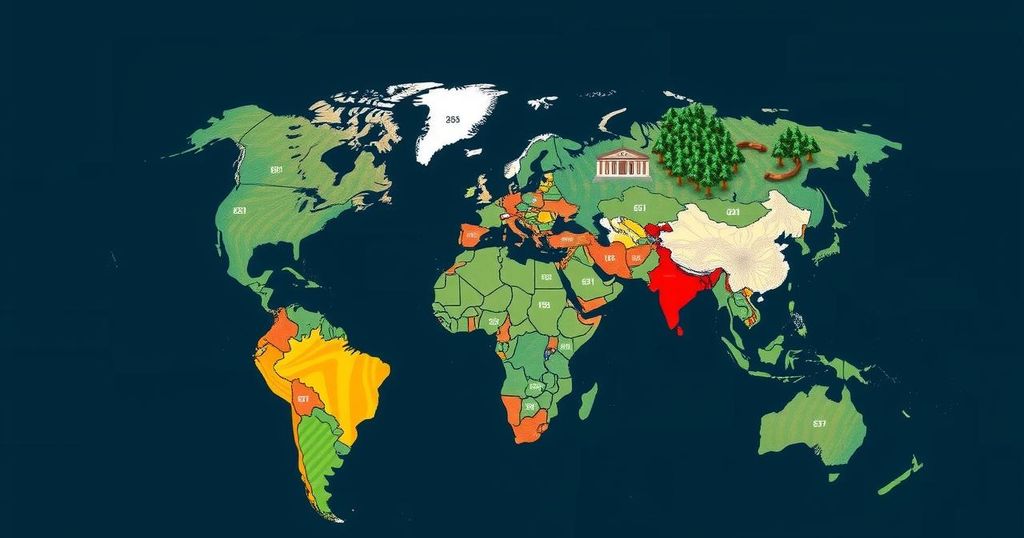Wealthy Nations’ Inaction on Climate Crisis: A Disservice to the Planet
Wealthy nations are failing to provide adequate financial support for climate action as evidenced by the disappointing outcomes of the COP29 conference, where only $300 billion per year was pledged to developing countries by 2035, far below the $1.3 trillion needed. This inadequacy undermines efforts to adapt to climate impacts and indicates a broader failure of developed nations to uphold their responsibilities, risking global repercussions.
Rich industrialized nations have played a significant role in causing the climate crisis, yet they exhibit a profound reluctance to provide adequate financial support to poorer nations struggling to adapt to the repercussions of climate change. During the COP29 conference, expectations were high that wealthier countries would begin to fulfill their financial obligations, marking a pivotal moment in global climate action. However, discussions culminated in a commitment to transfer merely $300 billion annually to developing nations by 2035, a figure that starkly contrasts with the $1.3 trillion recommended by economists to effectively combat climate impacts.
The consequences of this inadequate financial support are severe, impacting not only the vulnerable nations but jeopardizing the future of all nations involved. The minimal funding agreed upon fails to account for inflation and is insufficient to meet the recovery costs associated with devastating climate-related disasters. This has led to widespread disappointment among climate advocates, who perceive this outcome as a betrayal by wealthier nations that espouse a commitment to climate action without corresponding efforts.
COP President Mukhtar Babayev voiced concerns over the outcome, emphasizing the failure to address the needs of developing nations adequately. Several senior global leaders have criticized the existing negotiations structure, advocating for a comprehensive overhaul to facilitate a more efficient response to climate change. They underscore the necessity for a robust commitment to emissions reduction and significant funding directed toward essential climate action.
The article focuses on the ongoing climate crisis exacerbated by wealthy nations with a historical responsibility for greenhouse gas emissions. The recent COP29 conference highlighted the shortcomings in financial commitments made by developed countries to developing nations, particularly in light of the urgent need for adaptation and mitigation measures. It emphasizes the growing inequity in climate financing and the risks posed to global stability, underlining the views of various leaders and economists who advocate for more ambitious actions to avert catastrophic climate change impacts.
In conclusion, the reluctance of affluent nations to honor their financial commitments for climate action poses a grave threat to global cooperation in addressing climate change. The disappointing outcomes of COP29 reflect a failure to meet the needs of developing nations that are already facing severe climate-related challenges. To avert further catastrophe, an urgent recalibration of priorities and a unified commitment to substantial funding for climate initiatives are crucial.
Original Source: bylinetimes.com




Post Comment